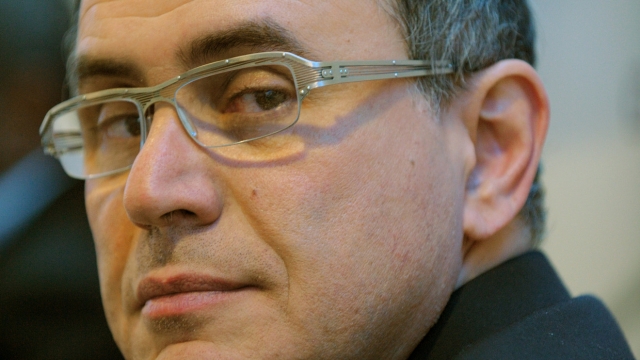
Roubini: Global economy appears to be in a sweet spot
http://ift.tt/2ibFTl4
The global economy appears to be in a sweet spot given the upturn in world-wide growth and low inflation in advanced economies, economist Nouriel Roubini said Saturday, despite risks from factors as varied as potential U.S. protectionism, uncertain Chinese growth and Federal Reserve policy.
Roubini, whose warnings on housing prices ahead of the financial crisis earned him the moniker, ”Dr. Doom,” spoke on a panel on capital flows at the Institute of International Finance annual conference in Washington. He said current conditions are a good set up for emerging markets. Globally, interest rates are low because of still accommodative central bank policy and a global savings glut, as well as low global investment.
Roubini, chairman of Roubini Global Economics, ticked off a variety of risks. In the U.S., he says the biggest concern remains protectionism.
“There’s rising risks that Nafta is on a collision course,” he said. A U.S. withdrawal from the trade treaty would be a big mistake because it would result in a populist south of the U.S. border.
“Cooler minds should realize you can posture but that’s not something sensible to do,” he said.
The biggest risk in 2018 will be posed by the Trump administration, he said. He also warned that “excessive” U.S. tax cuts could cause the dollar to strengthen and the Federal Reserve to have to hike rates more aggressively.
Roubini said concerns over a hard landing for China’s economy have declined, but remains a concern.
And Roubini said there’s also a risk of a surge of inflation. “It’s not my baseline, but what if we’re really close to full employment and rising wages, then the Fed would be behind the curve” and have to tighten interest rates aggressively.
Hyun Song Shin, head of research for the Bank for International Settlements, pointed out that a weak dollar drives capital flows. “When the dollar is weak, you see faster flows, especially denominated in U.S. dollars. When the dollar strengthens, capital flows slow down or reverse.”
Taimur Baig, global chief economist at DBS Bank, said he was worried about regulatory arbitrage in Asia, pointing to the rise of nonbank lending, particularly in India. Noting the 20th anniversary of the Asian financial crisis, he said what got the region in trouble was that finance companies in Thailand weren’t well regulated.
Richard Lacaille, global chief investment officer at State Street Global Advisors, said he expects U.S. tax reform to be delayed and diluted. “It’s difficult to reconcile the big picture of overseas earnings being repatriated with the reality of getting things done in Washington.”
business
via MarketWatch.com – Top Stories http://ift.tt/dPxWU8
